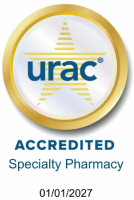Folic acid is important for all human beings, but it is essential for the healthy development of your future baby. It is a water-soluble B-vitamin found in many natural food sources (more on that below). Among other things, folic acid is responsible for making new cells, critical in the development of a fetus.
7 Facts About Folic Acid: An Essential Vitamin for Pregnant Women
Healthcare providers follow the CDC guidelines for reproductive women when prescribing folic acid supplements and/or prenatal vitamins. They also recommend adhering to the recommended doses for pregnant women (which are slightly higher) when you are trying to conceive. This ensures the fertilized egg and embryo are getting all of the folic acid it needs before you know you’re pregnant.
Here are 7 facts to help you learn more about folic acid and how important it is to human life.
1. Folic acid may also be called…
You may notice folic acid and related versions are called different things in different resources. Examples include:
- Folacin
- Folate
- Vitamin B9
Vitamin B9 and folic acid are references for the types that are most efficiently absorbed by the body.
2. Folic acid deficiency is strongly linked to birth defects
Women with low levels of folic acid are more likely to give birth to babies with birth defects, most commonly brain or neural birth defects such as spina bifida, neural tube (brain and spinal) defects, as well as lower birth weights.
3. It is found in many natural food sources
While you’ll see folic acid listed as a supplemental ingredient in certain fortified foods, it is best to ingest it via natural food sources. Natural sources of folic acid include:
- Beans, peas, and lentils
- Asparagus
- Eggs
- Leafy greens (kale, chard, bok choy, spinach, arugula)
- Citrus fruits and juices (but watch the sugar intake)
- Beets (try them roasted, pickled, in juice blends, or cut raw in matchsticks for salads)
- Broccoli
- Brussels sprouts
- Nuts and seeds
- Wheat germ (can be sprinkled in granola, on yogurt or morning cereal, or added to smoothies)
- Bananas
- Papaya
- Avocado
Folic acid is also found in beef liver but liver is no longer recommended for women who are pregnant.
4. You can find folic acid in most fortified foods
When the FDA realized that folic acid was so important and that many of the natural foods containing folic acid may not be available year-round (depending on where women live), they began working with food manufacturers to create fortified food products.
These food products have synthetic supplements to help increase their nutritional value and provide a year-round supply of folic acids via foods that have a longer shelf life. Examples of processed foods containing folic acid or folate are labeled as “fortified” and you can see Folic acid or Folate listed in the ingredient list. The most common are:
- Breads
- Cereals
- Pasta
- Certain flours
- Cornmeal/maize (some products)
5. 400 mg vs 600 mg Doses
If you are a woman of reproductive age, the CDC recommends getting an average of 400 mg of folic acid per day. Getting adequate folic acid is not only good for your body, it gives the baby you didn’t know you are pregnant with a better head start. Once you find out you are pregnant, they recommend getting up to 600 mg per day, and that dose continues while you are breastfeeding. You should always speak to your doctor before increasing from the 400 to 600 mg recommendations.
6. Folic acid is good for you, too
Yes, folic acid is good for babies, but it is good for you, too. In addition to supporting new cell growth, folic acid supports:
- Red blood cells
- Skin, hair, and nail growth
- Healthy kidney function
- DNA replication
- Cancer prevention
7. Too much folic acid is bad for you
We understand that as a woman pursuing fertility treatments, you may have the urge to support your healthy pregnancy to excess. Know that too much folic acid is not a good thing. This article from Harvard.edu warns against overloading on folic acid. While it’s true that fortified foods and focus on folic acid for fetal health exponentially triggered public awareness and increased folic acid doses in prenatal vitamins and fortified foods, it’s also true that colorectal cancer records increased as people intentionally began taking more folate/folic acid.
It’s worth noting that there have been no negative outcomes from eating natural foods that contain folic acid. The adverse health effects from too much folic acid were all related to supplementation.
Always speak to your physician about your current folic acid intake. The team at Freedom Fertility Pharmacy continues to wish you luck as you work to make your fertility goals come true. And, if you came across this article because you’ve recently learned you are pregnant, we wish you a hearty congratulations.

